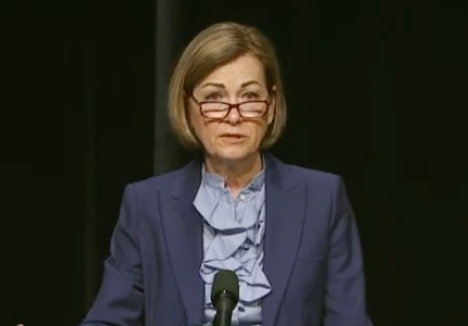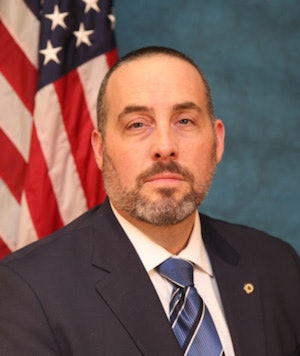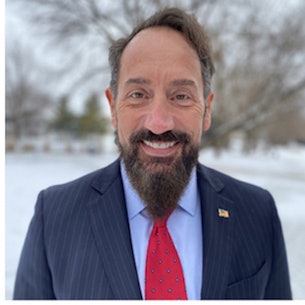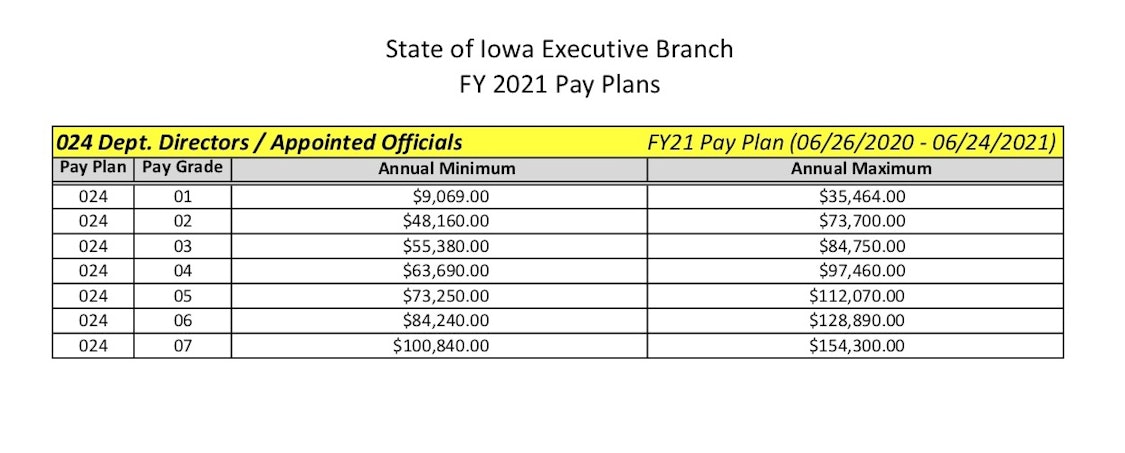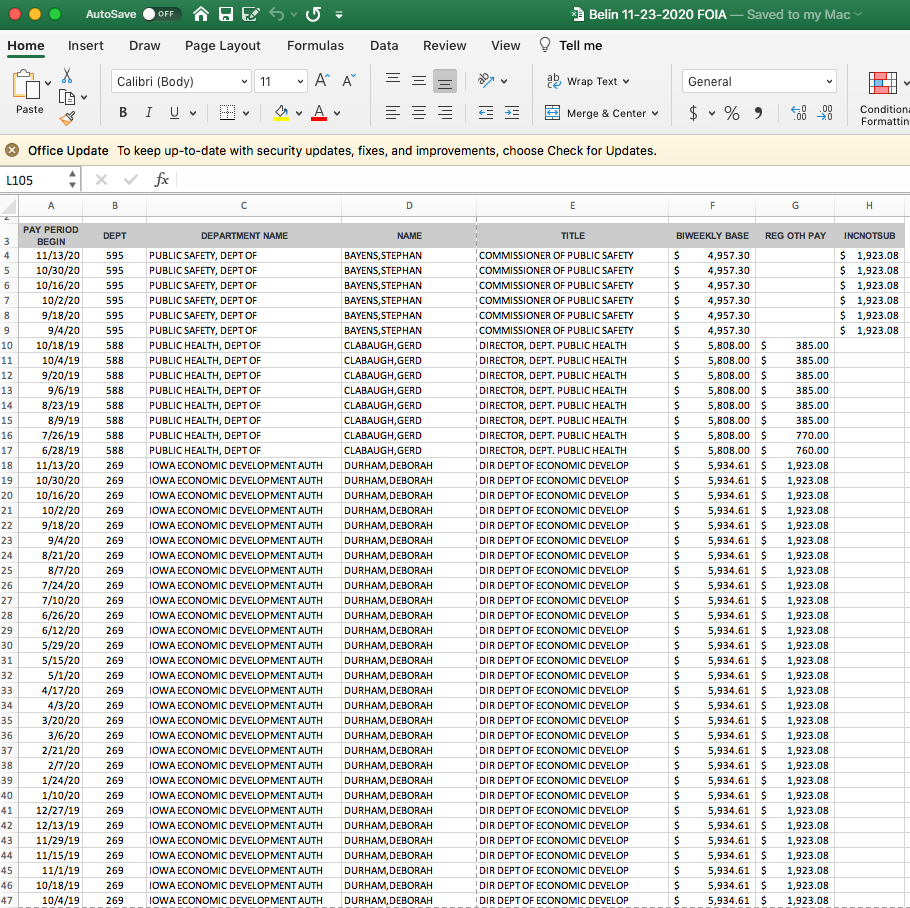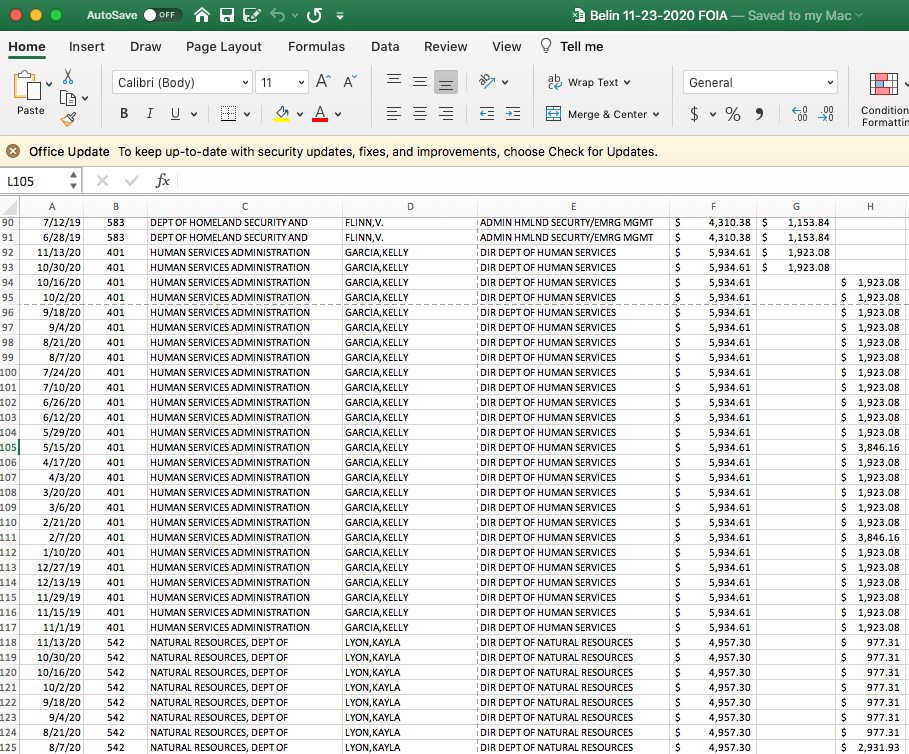Governor Kim Reynolds has approved bonuses for at least five current state agency directors, allowing them to receive substantially more compensation than the top of the pay scale Iowa law sets for their positions.
The Iowa Department of Administrative Services disclosed information about four agency leaders now receiving such bonuses in response to Bleeding Heartland’s public records request. The Cedar Rapids Gazette’s Erin Jordan was first to report on Homeland Security and Emergency Management Director Paul Trombino’s bonus, in an article published April 7.
This post discusses each official’s bonus pay in the order that they were awarded. The governor’s spokesperson Pat Garrett did not respond to an April 7 email seeking to clarify whether any other heads of state departments are receiving greater compensation than the statutory maximum for their positions.
ECONOMIC DEVELOPMENT DIRECTOR’S BONUSES BEGAN IN 2011
Photo from Debi Durham’s LinkedIn profile
Iowa law sets $154,300 as the maximum annual pay for the Iowa Economic Development Authority director. However, Debi Durham has received large bonuses every year since Governor Terry Branstad named her to lead the state’s economic development efforts soon after winning the 2010 election. Branstad approved $30,000 bonuses for Durham in her first few years, and state salary records show that for most of the last decade, Durham’s annual gross pay was between $30,000 and $35,000 above the statutory maximum.
Reynolds named Durham acting director of the Iowa Finance Authority in 2018 and made that additional leadership role permanent in January 2019. At that point, she increased Durham’s annual bonuses to $50,000. Records provided by the Department of Administrative Services, enclosed below as Appendix 2, show Durham receives that bonus in biweekly installments of $1,923.08 on top of her biweekly base pay of $5,934.61.
“ONE-TIME BONUS” EXTENDED FOR HUMAN SERVICES DIRECTOR
Cropped from official photo on Iowa DHS website
State law caps the Iowa Department of Human Services director’s pay at $154,300, which is what Jerry Foxhoven earned after Reynolds appointed him in June 2017.
When the governor selected Kelly Garcia to lead the agency in 2019, a few months after forcing Foxhoven out, she told journalists Garcia would receive a “one-time” signing bonus of $50,000. Iowa Public Radio’s Katarina Sostaric reported at the time that Reynolds said the extra pay is “part of what it takes to get good talent into the state of Iowa.” Garcia had been earning $195,000 a year in a previous position in Texas, the Des Moines Register’s Barbara Rodriguez noted.
For the most part, Garcia is paid just like Durham: $5,934.61 in biweekly base pay, with her bonus in $1,923.08 biweekly installments. However, the DHS director received double that bonus amount on two occasions, which meant she collected her first year’s bonus over 24 pay periods instead of 26. Also, Garcia’s initial $50,000 bonus was not subject to withholdings for Iowa’s public pension system IPERS.
Last summer, Reynolds named Garcia interim director of the Iowa Department of Public Health. Officially, Garcia took on that second role at the beginning of August, upon the previous director’s retirement, though Garcia was involved in public health decisions weeks before then.
Since the pay period that began on October 30, 2020, Garcia has continued to receive $1,923.08 in bonus pay every two weeks, but now those bonuses are subject to IPERS withholdings. Neither the governor’s office nor DHS announced the decision to extend Garcia’s bonus pay, which brings her total annual compensation to $204,300.
DNR DIRECTOR’S BONUSES BEGAN DURING SECOND YEAR
Kayla Lyon’s Twitter profile photo
The maximum salary for the Iowa Department of Natural Resources director is $128,890. Reynolds left an acting director in charge of that agency for more than a year before choosing her legislative liaison Kayla Lyon to run the DNR in June 2019.
On the governor’s staff, Lyon had earned an annual salary of about $90,000, but she started at the top of the pay scale for the DNR. State salary records show Lyon’s annual gross pay was $123,314.56 during the fiscal year running from July 1, 2019 to June 30, 2020. She was still on the governor’s office payroll for the first week of that fiscal year, moving to the DNR on July 8.
Effective July 10, 2020, Lyon began receiving biweekly bonus payments of $977.31 in addition to her biweekly base pay of $4,957.30. The bonuses work out to about $25,000 annually and will bring Lyon’s total compensation to roughly $154,000. These bonuses are not subject to IPERS withholding.
Two more points worth noting: state salary records show that during Chuck Gipp’s first five years as DNR director under Governor Branstad, he never earned more than the designated top salary. Gipp came to that job with far more experience in state government than Lyon had.
Bruce Trautman served as acting DNR director from April 2018 until Lyon’s tenure began in early July 2019. Because he was serving in an “acting” capacity, Trautman was able to continue collecting a salary above the statutory maximum for that agency’s director. Records show he earned just under $150,000 during the 2019 fiscal year.
PUBLIC SAFETY COMMISSIONER’S EXTRA PAY BEGAN IN SEPTEMBER 2020
Official photo from Iowa DPS website
The top salary for the Iowa Department of Public Safety commissioner is set at $128,890. Stephan Bayens started at that level soon after Reynolds appointed him in early 2019. Before joining state government, Bayens had nearly two decades of experience working as a prosecutor.
Reynolds awarded a $50,000 annual bonus to Bayens more than halfway through his second year on the job. Starting with the September 4, 2020 pay period, the public safety commissioner has received biweekly bonus payments of $1,923.08 in addition to his base pay of $4,957.30. These bonus payments are not subject to IPERS withholding.
BONUS ENSURES NO PAY CUT FOR HOMELAND SECURITY DIRECTOR
Official photo from Iowa Homeland Security website
The Iowa Department of Homeland Security and Emergency Management director’s pay is capped at $112,700. That’s quite a bit less than Paul Trombino III was earning as chief operating officer in the governor’s office before Reynolds appointed him to lead the Homeland Security agency in January. (The Department of Administrative Services had been paying Trombino’s salary and benefits since March 2020, when Reynolds put him in charge of that agency while he remained on her staff.)
Records obtained by the Cedar Rapids Gazette’s Jordan show Reynolds approved a $40,000 “retention bonus” for Trombino in January, then increased that bonus to $46,176.40 on February 9, according to a letter signed by the governor’s chief of staff Sara Craig Gongol.
Trombino earned $156,000 during the fiscal year that ended on June 30, 2020, state salary records show. A spreadsheet Bleeding Heartland obtained through a request last year indicated that Trombino’s biweekly base pay increased from $5,961.60 to $6,086.40 at the beginning of the current fiscal year. Over 26 pay periods, that would have generated an annual salary of $158,246.40.
Trombino’s retention bonus, to be paid in 26 biweekly installments, will bring his total annual compensation to the same amount: $158,246.40. He will be required to stay at Homeland Security for twelve months to receive the full bonus. I’m seeking clarification on whether Trombino’s bonus payments are subject to IPERS withholding. UPDATE: These payments are not subject to IPERS withholding.
State records indicate that Trombino’s predecessor, Joyce Flinn, saw her annual compensation increase from $126,349.60 in fiscal year 2016 to $135,208 the following year and $159,430.04 during the 2018 fiscal year, the last before the Homeland Security director’s annual pay was capped at $112,700. Reynolds subsequently gave Flinn bonuses; records from the Department of Administrative Services show that during her last year and a half of state employment, Flinn was receiving an extra $1,153.84 per pay period, which works out to a $30,000 annual bonus.
For whatever reason, Reynolds did not top up Flinn’s pay by enough to keep the Homeland Security director at her 2018 earning level. Perhaps Trombino drove a harder bargain.
LACK OF TRANSPARENCY
Jordan’s April 7 story noted, “The Gazette received copies of the letters from the state 42 days after requesting records about bonuses granted to state directors under Iowa’s open records law.” There was no good reason to slow-walk that request. Pay for top agency officials is a matter of public interest, especially when their compensation exceeds salary caps, and/or contradicts prior statements (such as Reynolds’ assertion that Garcia would receive a “one-time” bonus).
I asked the Department of Administrative Services for records related to bonus pay for agency leaders on November 23, 2020 and received them on January 29, 2021. However, agency staff ignored follow-up questions in February and March about why the spreadsheet presented bonus pay in two different ways. I finally got an explanation on April 7. My request for documents related to Trombino’s compensation had been pending for more than two weeks when Jordan published her scoop.
Appendix 1: Current minimum and maximum pay for Iowa state agency leaders. The directors of the Iowa Economic Development Authority and Department of Human Services are at pay grade 7, the Department of Public Safety commissioner and Department of Natural Resources director are at pay grade 6, and the Homeland Security and Emergency Management director is at pay grade 5.
Appendix 2: Screenshots of a spreadsheet the Iowa Department of Administrative Services provided to Bleeding Heartland on January 29 in response to a November 23, 2020 records request on bonuses. Staff did not clarify the meanings of the “REG OTH PAY” and “INCNOTSUB” column headings until April 7, when Tami Wiencek explained, “‘INCNOTSUB’ means income not subject to IPERS. So, there are no withholdings from pay for IPERS. ‘REG OTH PAY’ means other pay in addition to the employee’s regular bi-weekly pay and is subject to IPERS.”
Top image: Governor Kim Reynolds speaks to reporters on April 7. Screenshot from the Iowa PBS video.

